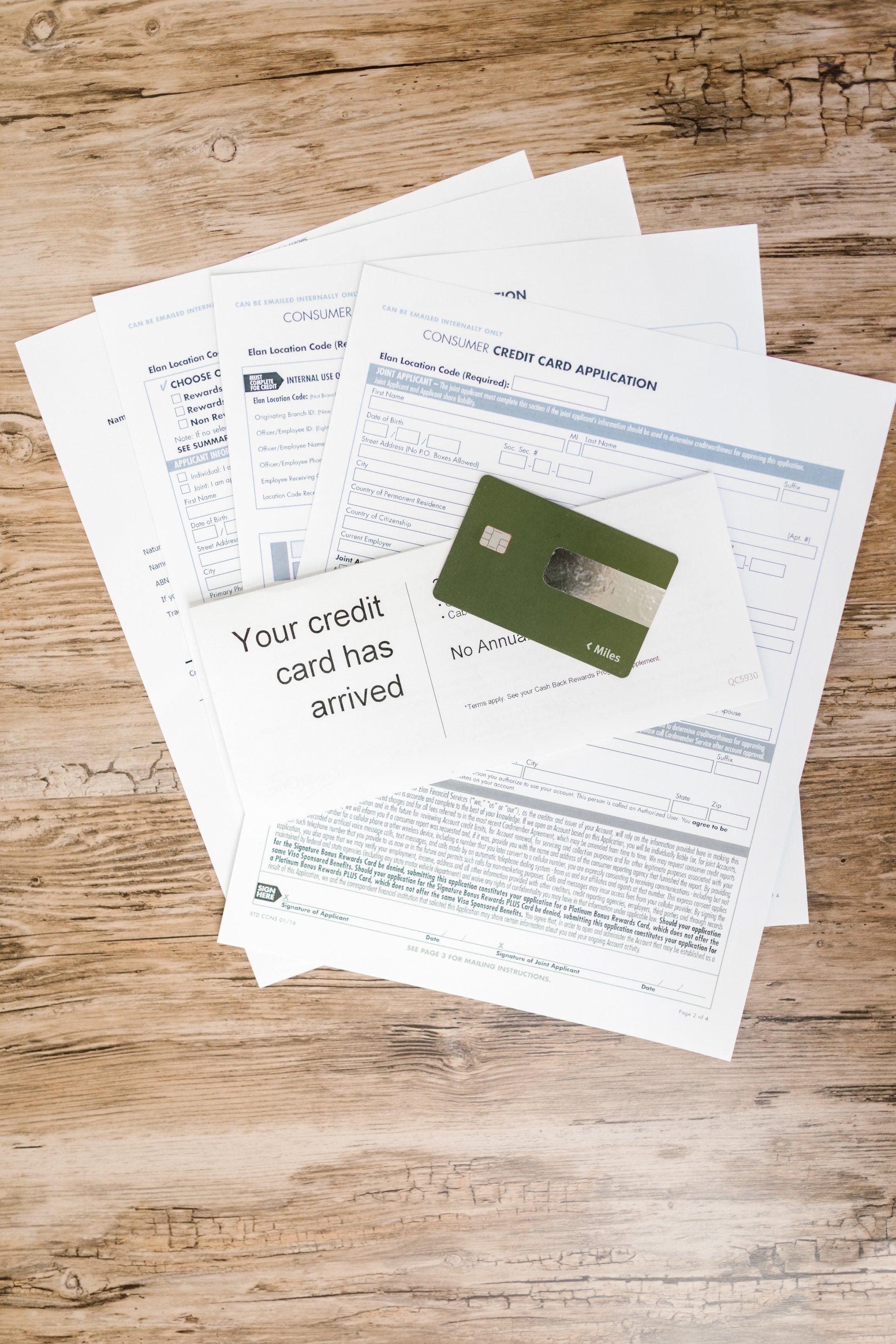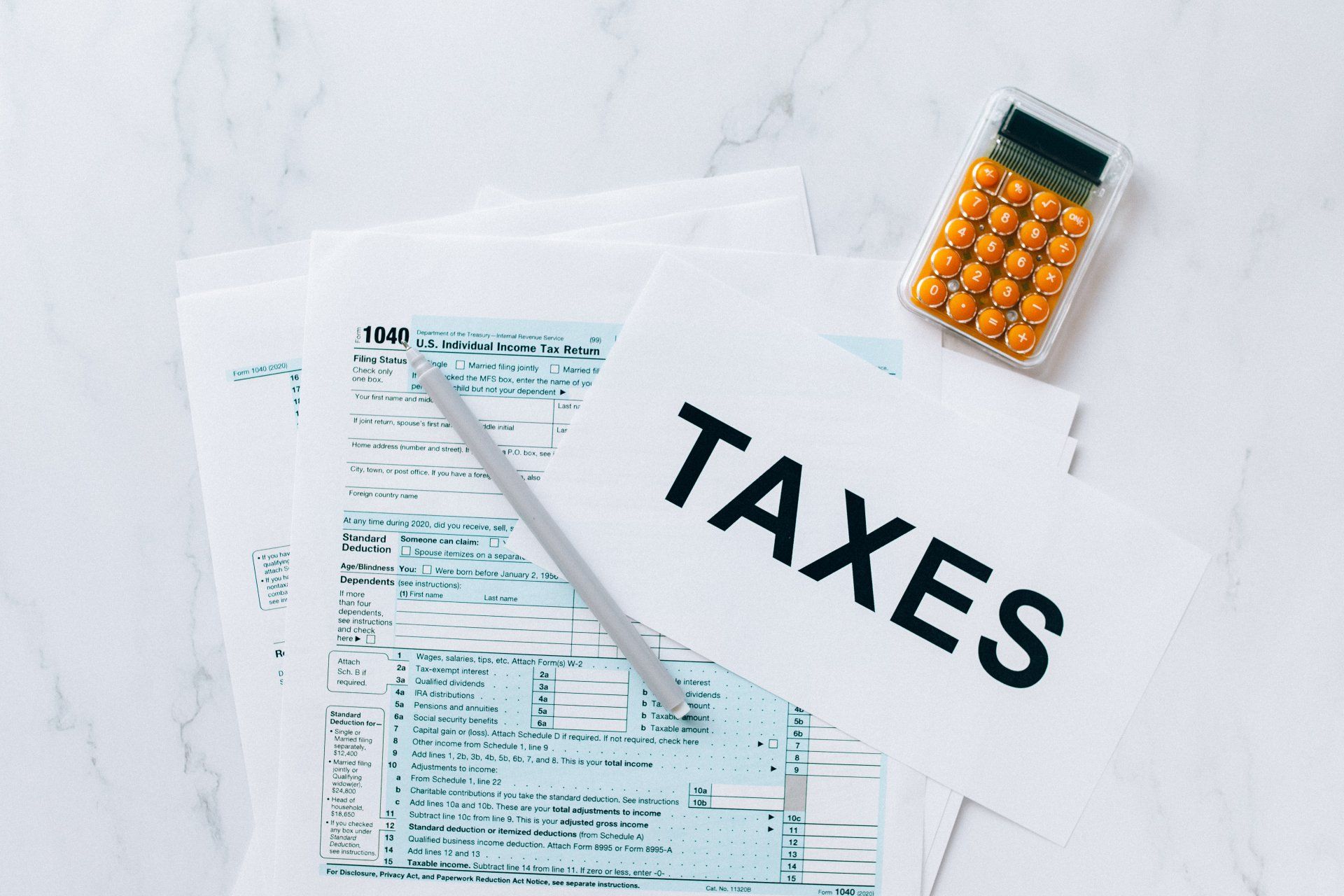Credit Restoration What You Need To Know

Introduction to Credit Restoration
Credit restoration is a crucial process for individuals looking to improve their financial standing and creditworthiness. It involves identifying inaccuracies or outdated information on credit reports and taking steps to correct them. The significance of reintroduction to Credit Restoration
Credit restoration is a crucial process for individuals looking to improve their financial standing and creditworthiness. It involves identifying inaccuracies or outdated information on credit reports and taking steps to correct them. The significance of credit restoration lies in its potential to positively impact an individual's credit score, which is a key determinant in accessing financial products and services on favorable terms.
Brief Overview of Credit Restoration
Credit restoration, often synonymous with credit repair, aims to rectify any errors on an individual's credit report. These errors can range from inaccuracies in personal information to incorrect reporting of account statuses. By disputing these errors with the credit bureaus or creditors, individuals can ensure their credit reports accurately reflect their financial behavior and borrowing history.
Significance of Credit Restoration
The significance of credit restoration cannot be overstated. A higher credit score, which can result from successful credit restoration, opens up a range of financial possibilities. It can lead to better interest rates on loans and credit cards, higher chances of loan approval, and can even influence job prospects and housing options. Essentially, credit restoration can serve as a stepping stone towards financial stability and access to opportunities that might otherwise be out of reach.
Importance of Credit Restoration
Credit restoration is pivotal for enhancing financial health and accessing broader financial opportunities. Having a good credit score, a direct outcome of effective credit restoration offers substantial benefits:
Lower Interest Rates: A higher credit score can qualify you for lower interest rates on loans and credit cards, leading to significant savings over time.
Increased Borrowing Opportunities: With a good credit score, lenders are more likely to approve loan and credit applications, opening up various borrowing opportunities that were previously inaccessible.
Better Loan Terms: A strong credit score not only facilitates loan approval but also secures more favorable loan terms, such as higher borrowing limits and more attractive repayment conditions.
Negotiation Leverage: A good credit score gives you the leverage to negotiate better terms and interest rates, both for loans and credit card debts.
Improving your credit through restoration directly impacts your financial opportunities, enabling:
Homeownership: Easier access to mortgages with favorable rates, making homeownership more attainable.
Entrepreneurial Ventures: Enhanced ability to secure business loans or credit lines, critical for starting or expanding a business.
Employment Prospects: Some employers consider credit scores in their hiring decisions, particularly for positions that entail financial responsibility.
Insurance Rates: A better credit score can lead to lower insurance premiums, thereby reducing overall costs.
Reduced Security Deposits: Utility companies and landlords may require lower security deposits if you have a good credit score.
The Impact of Poor Credit
Having poor credit can significantly restrict financial flexibility and lead to several adverse effects, particularly in terms of financial implications. Here are the key areas where poor credit can have a pronounced impact:
Higher Interest Rates on Loans and Credit Cards: One of the most immediate consequences of poor credit is the necessity to pay higher interest rates. Lenders view individuals with poor credit as high-risk borrowers, and to mitigate this risk, they often charge higher interest rates. This means that loans and credit cards come with more expensive borrowing costs, increasing the overall amount you'll have to repay over time.
Difficulty Securing Loans or Mortgages: Poor credit can make it challenging to get approved for loans, including personal loans, auto loans, and mortgages. Lenders use credit scores as a key determinant in their decision-making process. A low score can lead to loan applications being denied, limiting your ability to finance significant purchases like a home or a car. Even if you manage to get approved, the terms are likely to be less favorable, with higher interest rates and possibly more stringent repayment terms.
Emotional and Psychological Effects of Poor Credit
Poor credit can have significant emotional and psychological effects, extending beyond mere financial implications. The strain of dealing with poor credit can impact one's mental health and personal life in various ways:
Stress and Anxiety Over Financial Security: The challenges that come with poor credit, such as high-interest rates, loan rejections, and the constant struggle to meet financial obligations, can lead to heightened stress and anxiety. Concerns about not being able to secure funds for important needs or emergencies can create a persistent sense of insecurity and worry about the future.
Impact on Personal and Family Life: Poor credit can strain relationships and family dynamics. Financial strain is a common source of tension and conflict within families, affecting everything from daily living to long-term plans and aspirations. The stress of managing debt and financial uncertainty can also detract from the quality of personal and family life, leading to issues such as reduced leisure activities, heightened tensions, and an overall decrease in life satisfaction.
The emotional toll of dealing with poor credit underscores the importance of addressing financial issues proactively. Seeking solutions for credit restoration, financial counseling, and debt management can help alleviate these pressures, contributing to better mental health and improved personal relationships.
Common Causes of Credit Score Decline
Several factors can lead to a decline in your credit score, each affecting your financial health in different ways. Understanding these common causes can help in identifying areas for improvement and preventing further damage to your credit score.
Late Payments: Payment history is a critical component of your credit score, accounting for a significant portion of the calculation. Late payments on loans, credit cards, or other financial obligations can severely impact your credit score. Even a single late payment can cause a noticeable drop, signaling to lenders that you may be a higher-risk borrower.
High Credit Utilization: Credit utilization refers to the ratio of your credit card balances to your credit limits. High utilization, especially consistently carrying balances that are close to your credit limits, can negatively affect your credit score. It suggests to creditors that you're over-reliant on credit, increasing the perceived risk of lending to you.
Defaults and Collections: Failing to pay your debts to the point where they go into default or are sent to collections is a serious issue that can significantly impact your credit score. These events indicate a substantial failure to meet your credit obligations and can remain on your credit report for up to seven years, continually affecting your creditworthiness.
Bankruptcies and Foreclosures: Filing for bankruptcy or undergoing foreclosure are among the most severe factors that can affect your credit score. These events indicate a complete inability to meet your financial obligations and can drastically reduce your credit score. The impact of bankruptcies and foreclosures can last for years, making it difficult to rebuild credit and secure new lines of credit.
Each of these factors negatively impacts your credit score by signaling to lenders that you may be a higher-risk borrower. Late payments, high credit utilization, defaults, collections, bankruptcies, and foreclosures all suggest a history of financial instability or an inability to manage credit effectively. As a result, lenders may be more hesitant to extend credit, or may do so at higher interest rates, further exacerbating financial challenges. Understanding these common causes of credit score decline is essential for taking proactive steps to improve your credit health and financial stability.
Initial Steps in Credit Restoration: Obtaining Your Credit Report
A critical first step in the credit restoration process is obtaining your credit report. This document provides a comprehensive overview of your credit history, including accounts opened in your name, payment history, and any debts you may have. Here’s how to access your credit report from the three major credit bureaus:
AnnualCreditReport.com: The Fair Credit Reporting Act entitles you to one free credit report every 12 months from each of the three major credit bureaus: Equifax, Experian, and TransUnion. The official website, AnnualCreditReport.com, is the authorized platform for consumers to access these free reports. Due to special circumstances, such as the COVID-19 pandemic, there have been periods when free reports were made available more frequently.
Directly from the Credit Bureaus: You can also request your credit report directly from each bureau. Each bureau may have its own process for requesting a report, which can typically be done online, by phone, or by mail.
Equifax: Offers credit reports through its website. You can also request your report by calling their customer service or by mailing a request form.
Experian: Allows consumers to request their credit report online, by phone, or via mail. Experian also provides a service for monitoring your credit report and alerts.
TransUnion: You can access your credit report from TransUnion by visiting their website, calling their customer service number, or sending a request through the mail.
Credit Monitoring Services: There are several credit monitoring services that offer access to credit reports from one or more of the major bureaus as part of their subscription packages. Some of these services may offer free trials, allowing you to view your report at no cost.
When you receive your credit report, review it carefully for any inaccuracies or outdated information. Identifying and addressing these issues is a vital part of the credit restoration process, as they can significantly impact your credit score. If you find errors, you can dispute them with the respective credit bureau, initiating an investigation into the inaccuracies. Correcting these errors can help improve your credit score, moving you one step closer to better financial health.
Identifying Errors and Discrepancies: The Importance of Thoroughly Reviewing Your Credit Report
Thoroughly reviewing your credit report is a fundamental step in the credit restoration process. This careful examination is crucial for identifying any errors or discrepancies that may be negatively impacting your credit score. Understanding the significance of this review can empower individuals to take control of their financial health and make strides towards improving their credit standing.
Key Reasons for Thorough Review
Detection of Inaccuracies: Credit reports can sometimes contain errors such as incorrect personal information, mistaken account details, or outdated records of payments. These inaccuracies can unfairly lower your credit score and hinder your ability to obtain credit.
Identifying Fraudulent Activity: Regular review of your credit report can help you spot signs of identity theft or fraudulent activities. Unauthorized accounts, transactions, or applications for credit in your name are red flags that your personal information may be compromised.
Understanding Credit Factors: Reviewing your credit report provides insight into the factors affecting your credit score, including credit utilization, length of credit history, and the mix of credit accounts. This knowledge can guide you in making informed decisions to improve your credit score.
Correcting Errors: Once you identify any errors or inaccuracies on your credit report, you can take steps to dispute them with the credit bureau. The bureau is legally required to investigate and correct any verified errors, which can lead to an improvement in your credit score.
Strategic Financial Planning: A thorough understanding of your credit report can aid in strategic financial planning, allowing you to prioritize paying off high-interest debts or correcting high credit utilization ratios, thereby improving your overall financial health.
How to Review Your Credit Report
When reviewing your credit report, pay close attention to the following sections:
Personal Information: Check for accuracy in your name, address, Social Security number, and employment information.
Credit Accounts: Verify that all listed accounts are yours and that the account statuses, balances, and payment histories are correct.
Inquiries: Ensure that you authorized all listed inquiries into your credit report, as unauthorized inquiries could indicate potential fraud.
Public Records: Review any listed public records, such as bankruptcies or foreclosures, for accuracy.
By regularly reviewing your credit report and taking action to correct any discrepancies, you can ensure that your credit score accurately reflects your creditworthiness. This diligence is a critical component of maintaining and improving your financial standing.
Strategies for Disputing Credit Report Errors
Disputing errors on your credit report is a critical step in credit restoration. Here’s a comprehensive guide on how to file a dispute with the credit bureaus and the importance of following up on disputes.
How to File a Dispute
Gather Documentation: Before filing a dispute, collect any documents that support your claim that an item on your credit report is inaccurate. This might include bank statements, payment histories, or correspondence from lenders.
Contact the Credit Bureau: You can file a dispute with the credit bureau that provided the report containing the error. This can usually be done online, by mail, or over the phone. Clearly identify each item in your report you believe is incorrect, state why you dispute the information, and request a correction or deletion.
Online: Visit the bureau’s website and follow their process for submitting disputes online.
By Mail: Write a dispute letter including your personal information, the specifics of your dispute, and any supporting documentation. Mail it to the bureau’s dispute address.
By Phone: Call the bureau’s customer service number to initiate a dispute over the phone, though you may still need to provide written documentation.
Contact the Information Provider: In addition to the credit bureaus, you should also inform the creditor or company that provided the inaccurate information (also known as the furnisher) of your dispute.
Send Your Dispute Letter and Documentation: Whether filing by mail or online, include your dispute letter and copies (not originals) of any supporting documents. If mailing, use certified mail with a return receipt requested.
Following Up on Disputes
Monitor the Progress: Keep track of the dispute process. Credit bureaus typically have 30 to 45 days to investigate and respond to your dispute.
Check for Updates: The credit bureau must inform you of the outcome of the dispute. If your dispute is successful, the incorrect information will be corrected or removed from your report.
The Importance of Diligence and Persistence in Dispute Resolution
Persistence Pays Off: Sometimes, a single dispute may not resolve the issue. If the error persists, consider re-disputing with additional documentation or clarification.
Keep Detailed Records: Maintain a file of all communications and documents sent to and received from both the credit bureaus and furnishers. This documentation is crucial if you need to escalate your dispute or seek legal advice.
Consider Additional Help: If disputes do not resolve the issue, you might consider seeking assistance from a consumer attorney or filing a complaint with the Consumer Financial Protection Bureau (CFPB).
Successfully disputing errors on your credit report can significantly improve your credit score, but the process requires attention to detail, patience, and persistence. Ensuring accuracy on your credit report is your right and a fundamental step toward maintaining and enhancing your financial health.
Debt Management Strategies
Effectively managing and reducing debt is crucial for financial stability. Various strategies can be employed, each with its own set of advantages and considerations. Here’s an analysis of some popular debt management strategies: Debt Consolidation, Debt Settlement, and the Snowball vs. Avalanche Method.
Debt Consolidation
Effectiveness: Debt consolidation involves combining multiple debts into a single debt, typically with a lower interest rate. This strategy can be effective in reducing the total amount of interest paid and simplifying payment processes. It's particularly useful for individuals with multiple high-interest debts, such as credit card debts.
Pros: Simplifies monthly payments and can reduce interest rates.
Cons: May lead to longer repayment periods and doesn’t address spending habits.
Debt Settlement
Effectiveness: Debt settlement involves negotiating with creditors to pay a lump sum that is less than the full amount owed. This can lead to significant reductions in debt but may negatively impact credit scores.
Pros: Can reduce the total debt owed significantly.
Cons: Can negatively affect your credit score, may involve fees, and not all creditors are willing to negotiate.
The Snowball vs. Avalanche Method
Snowball Method
Description: This method involves paying off debts from smallest to largest, regardless of interest rate, while making minimum payments on all other debts.
Effectiveness: Psychologically rewarding as it provides quick wins, which can motivate individuals to continue paying down debt. However, it might result in paying more interest over time compared to the avalanche method.
Pros: Quick sense of achievement; easy to start and maintain.
Cons: Potentially more expensive in the long run due to higher interest rates on larger debts.
Avalanche Method
Description: This method prioritizes debts with the highest interest rates first, while making minimum payments on others. Once the highest-interest debt is paid off, you move on to the next highest, and so on.
Effectiveness: Financially efficient as it saves the most money in interest over time. However, it may take longer to pay off the first debt, which can affect motivation.
Pros: Saves money on interest payments; reduces total debt faster.
Cons: May be challenging to maintain motivation without the immediate gratification of paying off smaller debts.
Conclusion
Choosing the right debt management strategy depends on individual financial situations, psychological factors, and personal preferences. Debt consolidation and settlement offer structural solutions to debt reduction, while the snowball and avalanche methods provide systematic approaches to paying down debt. It’s crucial to assess the total cost, potential impact on credit scores, and personal discipline to follow through with the chosen strategy. For many, a combination of these strategies tailored to their unique circumstances proves to be the most effective path to managing and reducing debt.
Improving Credit Utilization
Credit utilization, a critical factor in your credit score calculation, measures the amount of credit you're using relative to your total available credit limits. Understanding and managing your credit utilization ratio can significantly impact your creditworthiness and overall financial health.
Understanding Credit Utilization Ratio
The credit utilization ratio is expressed as a percentage, calculated by dividing your total outstanding credit card balances by your total credit limits across all cards. For example, if you have $2,000 in debt across credit cards with a combined limit of $10,000, your credit utilization ratio is 20%. Credit scoring models, such as those used by FICO and VantageScore, typically favor lower credit utilization ratios, viewing them as indicators of responsible credit management. A common rule of thumb is to keep your utilization under 30%, though lower is generally better for your credit score.
Explanation of How Credit Utilization Affects Your Credit Score
Credit utilization is second only to payment history in its impact on your credit score. High utilization can signal to lenders that you're over-reliant on credit, potentially making you a higher risk for default. Conversely, low utilization suggests that you're using credit responsibly, not maxing out your credit limits, and are likely managing your finances well. Because of its significance, even a small reduction in your credit utilization ratio can lead to improvements in your credit score.
Strategies to Lower Utilization
Pay Down Balances: The most straightforward strategy to reduce your credit utilization is to pay down your credit card balances. Even small extra payments above the minimum can help reduce your overall debt more quickly.
Increase Credit Limits: Requesting a higher credit limit on your existing accounts can lower your utilization ratio, provided you do not increase your spending. Most credit card issuers allow you to request a credit limit increase online or by phone.
Spread Out Your Balances: Spreading your spending across multiple cards can help keep the utilization lower on each individual card. However, the total utilization across all cards still matters, so the overall balance should be managed carefully.
Use a Balance Transfer Card: If you have high-interest credit card debt, consider transferring the balance to a card with a lower interest rate or a 0% introductory offer. This can help you pay down the balance faster by saving on interest.
Create a Budget: Implementing a budget can help control spending and prevent the accumulation of new debt, making it easier to pay down existing balances.
Set Up Balance Alerts: Many credit card issuers offer the option to set up alerts when your balance reaches a certain percentage of your credit limit. This can help you monitor and manage your utilization more effectively.
Improving your credit utilization ratio is a key strategy in boosting your credit score. By implementing these tips and maintaining responsible credit habits, you can improve your financial health and increase your attractiveness to lenders.
Handling Late Payments
Late payments can significantly impact your credit score and financial health. Effectively managing and negotiating these situations is crucial to mitigating their negative effects. Here are strategies for negotiating with creditors and setting up payment plans that are beneficial for both parties.
Negotiating with Creditors
Communicate Proactively: If you anticipate a late payment, contact your creditor before the payment is due. Creditors are often more receptive to working with customers who are proactive about their financial situations.
Explain Your Situation: Be honest and clear about why you are unable to make the payment on time. Whether it's due to unexpected expenses, job loss, or illness, providing context can help in negotiations.
Request Forbearance or Modification: Ask if there are any hardship programs available that could temporarily lower your payment amount or interest rate, or if they can extend your payment due date without reporting the late payment to credit bureaus.
Seek a Waiver for Late Fees: If this is your first time missing a payment, or if you've been a long-time customer with a good payment history, ask if the creditor can waive any late fees.
Document Everything: Keep records of all communications with creditors, including names, dates, and details of conversations, as well as any correspondence or agreements.
Setting Up Payment Plans
Assess Your Budget: Before negotiating a payment plan, thoroughly review your budget to determine what you can realistically afford to pay each month.
Propose a Payment Plan: Offer a specific payment plan that outlines how much you can pay each month and when you will make these payments. Be clear and realistic about your proposal to increase the likelihood of acceptance.
Request Confirmation in Writing: Once you and the creditor have agreed on a payment plan, request written confirmation of the agreement. This document should detail the payment amounts, due dates, and any other terms or conditions agreed upon.
Automate Payments: If possible, set up automatic payments for the agreed amount to avoid missing any future payments under the new plan.
Review and Adjust if Necessary: Keep an eye on your financial situation and the payment plan’s effectiveness. If your financial situation changes, contact the creditor to discuss adjusting the payment plan accordingly.
Handling late payments through proactive communication and negotiation with creditors can prevent a temporary financial setback from becoming a long-term credit issue. By following these steps, you can work towards resolving late payments in a way that minimizes damage to your credit score and maintains a positive relationship with your creditors.
Dealing with Collections and Charge-offs
When facing collections and charge-offs, it's critical to understand your rights and explore options for negotiating settlements. This knowledge can empower you to navigate these challenging situations more effectively.
Understanding Your Rights
Fair Debt Collection Practices Act (FDCPA): This act provides consumers with protection against abusive and deceptive practices by debt collectors. Key rights include:
The right to request that a debt collector cease communication.
The right to dispute the debt within 30 days of first contact.
The right to receive a validation notice detailing the amount of debt, the name of the creditor, and your rights in the dispute process.
Credit Reporting Time Limit: Collections and charge-offs can remain on your credit report for up to seven years from the date of the first delinquency. Understanding this timeline can help manage expectations regarding credit repair.
Protection from Harassment: You have the right to be free from harassment or abuse from collectors. This includes restrictions on the times collectors can call and a prohibition on threats and the use of obscene language.
Negotiating Settlements
Validate the Debt: Before negotiating, ensure the debt is valid. Request a debt validation letter from the collection agency if you haven't received one already. If the debt cannot be validated, you may not be obligated to pay.
Understand the Impact on Your Credit: Know that paying off a collection account won't immediately improve your credit score. However, some credit scoring models may view paid collections more favorably.
Start with a Low Offer: When negotiating a settlement, start with an offer lower than what you're prepared to pay. This gives you room to negotiate up if necessary.
Negotiate the Terms: Besides negotiating the amount, you can also negotiate the terms of payment, such as a lump sum or a payment plan. In some cases, you can also negotiate how the account will be reported to the credit bureaus (e.g., "paid in full" vs. "settled").
Get Everything in Writing: Before making any payment, ensure you have a written agreement from the collector that outlines the terms of the settlement, including the amount to be paid and the final status of the account on your credit report.
Consider the Tax Implications: Forgiven debt over a certain amount may be considered taxable income by the IRS. Be prepared to possibly include this in your tax filings.
Dealing with collections and charge-offs can be stressful, but understanding your rights and knowing how to negotiate settlements can provide a path forward. By approaching these situations informed and prepared, you can work towards resolving debts in a way that best suits your financial situation.
The Role of Credit Counseling and Debt Management Plans
Navigating the complexities of debt and credit issues can be daunting. Credit counseling and debt management plans (DMPs) offer structured paths for individuals seeking to regain control of their financial situations. Understanding what these services entail and how they can assist is vital for anyone considering these options.
What is Credit Counseling?
Credit counseling is a service provided by nonprofit agencies that aim to help individuals manage their debt, improve their credit, and make informed financial decisions. Credit counselors offer personalized advice on budgeting, managing debt, and using credit wisely. They review your financial situation, including income, debts, and expenses, and provide recommendations tailored to your specific circumstances.
Services Provided by Credit Counseling Agencies:
Financial Assessment: A comprehensive review of your financial situation to identify potential areas of improvement and develop a personalized plan.
Budgeting Advice: Guidance on creating and maintaining a budget to better manage your finances.
Debt Management Plans (DMPs): For those struggling with significant debt, counselors may suggest enrolling in a DMP, which involves consolidating monthly payments to creditors.
Credit Education: Education on credit reports, credit scores, and how to improve your credit over time.
Bankruptcy Counseling: If bankruptcy seems like the only option, credit counseling agencies provide the required pre-bankruptcy counseling session.
How Debt Management Plans Work
A Debt Management Plan is a structured program designed to pay off an individual's debts within a specific timeframe, usually 3-5 years. Here’s how DMPs work:
Assessment and Enrollment: After a thorough assessment of your financial situation, if a DMP is deemed appropriate, the credit counseling agency will help you enroll in the plan.
Negotiating with Creditors: The agency negotiates with your creditors on your behalf to potentially lower interest rates, waive fees, and set up a feasible monthly payment plan based on your budget.
Consolidated Payments: Instead of paying each creditor individually, you make one monthly payment to the credit counseling agency, which then distributes the payments to your creditors as agreed.
Ongoing Support and Education: Throughout the duration of the DMP, the credit counseling agency provides ongoing support and financial education to help you manage your finances more effectively and avoid future debt issues.
Benefits of Enrolling in a Debt Management Plan:
Reduced Interest Rates and Fees: Negotiations can lead to reduced rates and waived fees, lowering the overall cost of your debt.
Simplified Payments: Making one consolidated payment per month simplifies your finances and makes managing your debt more manageable.
Avoiding Collections and Charge-offs: By adhering to the DMP, you can keep accounts from falling into collections or being charged off.
Financial Education and Support: The process provides valuable financial education and support to prevent future debt problems.
Credit counseling and debt management plans offer structured and supportive paths for individuals looking to address their debt and improve their financial health. These services not only help in managing and paying off debt but also in building a foundation for a more secure financial future.
Bankruptcy: A Last Resort
Bankruptcy often stands as a last resort for individuals overwhelmed by debt, offering a path to potentially eliminate or restructure their liabilities and start afresh financially. Understanding the types of bankruptcy and their long-term impacts on credit is crucial for those considering this significant financial decision.
Types of Bankruptcy
The two most common forms of bankruptcy for individuals in the United States are Chapter 7 and Chapter 13, each catering to different financial situations and offering distinct paths toward debt resolution.
Chapter 7 Bankruptcy: Known as liquidation bankruptcy, Chapter 7 involves the sale of certain assets by a bankruptcy trustee to pay off debts. This type of bankruptcy can eliminate most unsecured debts like credit card debt and medical bills. Individuals must pass a means test to qualify, demonstrating that their income is too low to pay off their debts through a repayment plan.
Chapter 13 Bankruptcy: This is a reorganization bankruptcy, allowing individuals with a regular income to develop a plan to repay all or part of their debts over time, usually three to five years. Chapter 13 protects assets from liquidation and allows debtors to avoid foreclosure on their homes by catching up on missed mortgage payments through the repayment plan.
The Long-Term Impact on Credit
Bankruptcy has a profound and lasting effect on an individual's credit report, affecting their ability to obtain credit, the terms of credit available to them, and their overall financial stability for years.
Credit Report: Both Chapter 7 and Chapter 13 bankruptcies remain on your credit report for a significant period. A Chapter 7 bankruptcy stays on your report for 10 years, while Chapter 13 remains for 7 years from the filing date. This long-term visibility can deter lenders from offering credit, or result in higher interest rates and less favorable terms for the credit that is available.
Credit Score: Filing for bankruptcy can lead to a substantial drop in your credit score. The impact varies based on your credit history prior to filing; individuals with higher credit scores may see a more significant drop.
Rebuilding Credit: Rebuilding credit after bankruptcy is possible, but it takes time and disciplined financial management. This can involve obtaining secured credit cards, becoming an authorized user on someone else's card, and ensuring all payments on remaining debts are made on time and in full.
Future Borrowing: Even after a bankruptcy drops off your credit report, you may be asked about past bankruptcies when applying for certain types of loans, such as a mortgage. Being prepared to explain what led to the bankruptcy and how you've improved your financial habits since then can be helpful.
Bankruptcy can offer a fresh start for those in dire financial straits, but it comes with significant, long-lasting consequences, particularly regarding credit. Understanding these impacts is vital for anyone considering bankruptcy as a solution to their financial difficulties. It's often advisable to consult with a financial advisor or bankruptcy attorney to explore all possible options and understand the full ramifications before proceeding.
Building New Credit
Rebuilding or establishing credit can seem daunting, especially after financial setbacks. However, tools like secured credit cards and credit builder loans are designed specifically to help individuals build or rebuild their credit. Understanding how these financial products work can guide you towards improving your credit score and financial health.
Secured Credit Cards
Secured credit cards are a type of credit card designed for individuals with no credit history or those looking to rebuild their credit. Unlike standard (unsecured) credit cards, secured cards require a cash deposit from the cardholder, which serves as collateral and typically determines the credit limit.
How They Help Rebuild Credit: By making purchases with a secured credit card and paying off the balance on time, you demonstrate responsible credit behavior. Credit card issuers report this activity to the credit bureaus, contributing positively to your credit history. Consistent, responsible use of a secured credit card can lead to improvements in your credit score over time.
Transitioning to Unsecured Cards: Many issuers offer the option to upgrade to an unsecured credit card after a period of consistent on-time payments. This transition not only reflects your improved creditworthiness but may also come with a higher credit limit and better benefits.
Credit Builder Loans
Credit builder loans are another tool designed to help individuals build or improve their credit score. Unlike traditional loans, where you receive the borrowed amount upfront, with a credit builder loan, you make fixed payments to a lender over a set term, and the lender reports these payments to the credit bureaus.
How They Work: The lender places the loan amount in a secure account. The borrower makes regular, on-time payments towards the loan over a specified period, and the lender reports these payments to the credit bureaus. After the loan term ends and all payments have been made, the borrower receives the total amount saved, minus any fees or interest.
The Role in Establishing Credit History: Credit builder loans are effective for those with little to no credit history or those working to repair their credit. Since payment history is a significant factor in your credit score, the consistent, on-time payments associated with these loans can positively impact your credit score. Additionally, credit builder loans can help diversify your credit mix, which is another factor considered in credit scoring models.
Both secured credit cards and credit builder loans offer structured pathways for individuals to demonstrate financial responsibility and improve their credit scores. By carefully managing these tools—making payments on time, keeping balances low, and monitoring credit reports—you can lay a solid foundation for a stronger credit profile and enhanced financial opportunities.
Maintaining Healthy Credit Long-Term
Maintaining healthy credit is an ongoing process that requires discipline, foresight, and a good understanding of financial principles. Two key strategies for ensuring long-term credit health are regular monitoring of credit reports and responsible credit use. Implementing these practices can help safeguard your credit score, ensuring it remains robust over time.
Regular Monitoring of Credit Reports
Keeping a close eye on your credit reports is crucial for maintaining good credit health. Regular monitoring allows you to:
Identify Errors: Quickly spotting and disputing inaccuracies or fraudulent activities can prevent them from negatively impacting your credit score.
Understand Credit Factors: Regularly reviewing your credit report helps you understand the factors influencing your credit score, enabling you to make informed decisions that can improve it.
Track Progress: Monitoring your credit report allows you to see the effects of your financial behaviors, encouraging positive habits like timely payments and low credit utilization.
You are entitled to one free credit report per year from each of the three major credit bureaus (Equifax, Experian, and TransUnion) through AnnualCreditReport.com. Taking advantage of this and potentially using credit monitoring services can help you stay on top of your credit health.
Responsible Credit Use
Using credit wisely is fundamental to maintaining and improving your credit score. Here are some tips for responsible credit use:
Pay Bills on Time: Timely payment of your credit card bills and loans is the most critical factor in your credit score. Setting up reminders or automatic payments can help ensure you never miss a due date.
Keep Balances Low: High credit utilization can negatively affect your credit score. Aim to keep your balances low relative to your credit limits, ideally under 30% of your total available credit.
Limit New Credit Applications: Each application for credit can result in a hard inquiry, which may slightly lower your credit score. Apply for new credit sparingly and only as needed.
Diversify Your Credit: A mix of different types of credit (e.g., revolving credit like credit cards and installment loans like auto loans) can positively impact your score. However, only take on new credit if you can manage it responsibly.
Avoid Closing Old Accounts: The length of your credit history contributes to your credit score. Closing old credit accounts can shorten your credit history and potentially lower your score.
By incorporating these practices into your financial routine, you can maintain a healthy credit score over the long term. Regular monitoring and responsible credit use not only safeguard your current score but also lay the groundwork for a solid financial future.
The Role of Credit Repair Companies
Credit repair companies offer services aimed at improving an individual's credit score, primarily by addressing inaccuracies on credit reports. Understanding what these companies can realistically do, how to choose a reputable service, and the legal protections in place for consumers is essential for anyone considering this route for credit improvement.
What They Can and Cannot Do
What Credit Repair Companies Can Do:
Identify Inaccuracies: They can review your credit reports from the three major credit bureaus and identify errors or outdated information that may be negatively impacting your credit score.
Dispute Errors: They can file disputes on your behalf with the credit bureaus to have inaccuracies corrected or removed. This process involves gathering documentation and communicating with credit bureaus and creditors to challenge incorrect entries.
Advise on Credit Improvement: Many credit repair companies also offer counseling services to help you manage your credit more effectively moving forward.
What Credit Repair Companies Cannot Do:
Guarantee a Specific Outcome: No credit repair company can guarantee the removal of negative information from your credit report, especially if the information is accurate and verifiable.
Erase Legitimate Debts: They cannot remove or reduce valid debts you owe.
Charge Upfront Fees: Under the Credit Repair Organizations Act (CROA), credit repair companies are prohibited from requesting or receiving payment until they have completed the services they promised.
Choosing a Reputable Company
When selecting a credit repair service, consider the following to ensure you're choosing a reputable company:
Check for Transparency: Look for companies that are clear about their services, processes, and fees. They should not make unrealistic promises.
Research Their Reputation: Read reviews, check with the Better Business Bureau, and look for any complaints filed against the company.
Understand the Fees: Ensure you understand what you are being charged for and that the company complies with the law by not charging upfront fees.
Seek Recommendations: If possible, get recommendations from people you trust who have used credit repair services.
Legal Protections for Consumers
Two critical laws provide protections for consumers dealing with credit issues:
The Fair Credit Reporting Act (FCRA): This law ensures the accuracy, fairness, and privacy of information in consumer credit bureau files. It gives you the right to view your credit report and dispute inaccurate information directly with the credit bureaus and creditors.
The Fair Debt Collection Practices Act (FDCPA): This act protects consumers from abusive, deceptive, and unfair debt collection practices. It outlines when and how debt collectors can contact you and what they are allowed to say or do.
Understanding these laws can help you navigate the process of credit repair more effectively and protect your rights as a consumer. While credit repair companies can assist in disputing inaccuracies on your report, it's important to remember that you can take these actions yourself for free. However, if you decide to use a credit repair service, choosing a reputable company and being aware of your legal protections is crucial.
Credit Restoration Success Stories: American Score Increase Inc.
American Score Increase Inc., with its five-star Google reviews, over 18 years of experience, and an A+ BBB rating—a distinction held by only 1% of all credit repair companies in the country—has been instrumental in transforming the financial lives of countless individuals. Here are some inspirational examples of how they have helped clients successfully restore their credit:
Case Study 1: The Turnaround Story
John’s Challenge: John had a credit score deeply impacted by inaccurate charge-offs and several late payments dating back two years. Feeling overwhelmed and unsure where to start, he turned to American Score Increase Inc. for help.
The Resolution: Through meticulous review and disputes, American Score Increase Inc. identified and corrected inaccuracies on John's credit report. They also provided him with personalized advice on managing his finances better.
The Outcome: Within a year, John saw a significant increase in his credit score. This improvement enabled him to qualify for a mortgage with favorable terms, something he thought was years away.
Case Study 2: Breaking Free from Debt
Emma’s Challenge: Emma was burdened with high credit card debt and didn't know how to reduce her utilization rate effectively. Her credit score was suffering as a result.
The Resolution: American Score Increase Inc. worked with Emma to devise a strategic plan to pay down her debts, negotiating with creditors to lower interest rates where possible and advising on spreading her debt across accounts to optimize her utilization rate.
The Outcome: Emma's dedication, guided by the strategies recommended by American Score Increase Inc., led to a substantial decrease in her credit utilization. Her credit score improved dramatically, opening up new opportunities for credit with much more favorable conditions.
Case Study 3: Correcting Mistakes and Rebuilding Confidence
Alex’s Challenge: Incorrect reporting of a student loan as defaulted when it was in forbearance had severely damaged Alex's credit score. He felt helpless, facing the daunting task of disputing this error with no success on his own.
The Resolution: Turning to American Score Increase Inc. was a game-changer for Alex. Their experienced team not only got the incorrect default status removed but also counseled Alex on ways to rebuild and maintain his credit health.
The Outcome: With the default corrected and new credit-building strategies in place, Alex's score recovered. He was soon approved for a car loan with an interest rate he never thought possible given his previous credit status.
These success stories underscore the transformative impact that working with a highly reputable and experienced credit repair company like American Score Increase Inc. can have. By leveraging their expertise, individuals can navigate the complex process of credit restoration with confidence, ultimately achieving financial goals that once seemed out of reach.
Technological Tools and Resources for Credit Restoration
In the digital age, a plethora of technological tools and resources are available to aid individuals in monitoring, improving, and restoring their credit. These digital solutions range from apps and websites focused on credit monitoring to comprehensive financial planning tools. Leveraging these technologies can empower users to take control of their financial health and navigate the journey of credit restoration more effectively.
Apps and Websites
Several apps and websites have been developed to help individuals understand their credit scores, monitor changes, and identify areas for improvement. Here are some types of digital tools in this category:
Credit Monitoring Apps: These apps provide real-time updates on your credit score and credit report changes. Many also offer insights into the factors affecting your score and tips on how to improve it. Examples include Credit Karma, Credit Sesame, and myFICO.
Dispute Resolution Tools: Some platforms offer services to help you identify inaccuracies in your credit report and assist you in disputing them directly with credit bureaus. This can be a crucial step in credit restoration.
Credit Score Simulators: These tools allow you to simulate how certain actions, like paying down debt or opening a new credit account, might affect your credit score. This can help you plan your credit improvement strategy more effectively.
Financial Planning Tools
In addition to credit-specific apps and websites, there are several financial planning tools available that can support your overall financial health and, by extension, aid in credit restoration:
Budgeting Apps: Tools like Mint, YNAB (You Need A Budget), and PocketGuard help users create and stick to budgets, track spending, and set financial goals. Effective budgeting is foundational to managing debt and improving credit.
Debt Repayment Tools: These apps and websites can help you strategize your debt repayment by organizing your debts, suggesting payment strategies (like the debt snowball or avalanche method), and tracking your progress towards being debt-free.
Financial Education Resources: Understanding credit and personal finance is crucial for long-term financial health. Websites like NerdWallet, The Simple Dollar, and Investopedia offer extensive educational content on credit, debt management, budgeting, and more.
Using these technological tools and resources can significantly enhance your ability to monitor your credit, make informed financial decisions, and take actionable steps towards credit restoration. By integrating these digital solutions into your financial strategy, you can gain a clearer understanding of your financial situation, work efficiently towards improving your credit, and ultimately achieve a stronger financial footing.
Preventing Future Credit Problems
To safeguard against future credit problems, two key strategies emerge as paramount: financial literacy education and disciplined budgeting and financial planning. Emphasizing these aspects can significantly contribute to sustainable financial health and a strong credit profile.
Financial Literacy Education
Understanding the basics of personal finance and credit management is crucial in preventing future credit issues. Financial literacy encompasses a wide range of knowledge, including how credit scores are calculated, the importance of maintaining a good credit history, the implications of debt, and the basics of budgeting and saving.
Importance of Financial Education: Educated consumers are better equipped to make informed decisions about credit, investments, and debt management. Knowledge of financial principles helps individuals avoid predatory lending practices, understand the terms of credit agreements, and recognize the long-term consequences of their financial decisions. Financial education serves as the first line of defense against the cycle of debt and credit problems.
Accessing Financial Education: Numerous resources are available for those looking to improve their financial literacy. Non-profit organizations, financial institutions, and online platforms offer courses, workshops, and articles on a wide range of topics, from basic budgeting to complex investment strategies. Taking advantage of these resources can empower individuals with the knowledge needed to navigate the financial landscape confidently.
Budgeting and Financial Planning
Effective financial management through budgeting and planning is essential in preventing future credit issues. It involves understanding your income, managing expenses, and making informed decisions about saving and borrowing.
Strategies for Effective Financial Management:
Create a Realistic Budget: Identify your income and expenses to create a budget that reflects your financial reality. Use budgeting apps or spreadsheets to track spending and adjust as necessary.
Emergency Savings Fund: Build an emergency fund to cover unexpected expenses. This fund can prevent the need to take on high-interest debt in times of financial strain.
Set Financial Goals: Define short-term and long-term financial goals. Whether it's paying off debt, saving for a home, or planning for retirement, having clear goals can motivate you to make prudent financial choices.
Regular Financial Check-ups: Periodically review your financial plan and adjust it according to changes in your income, expenses, or financial goals. Regular reviews can help catch potential issues before they escalate.
Use Credit Wisely: Understand the terms of your credit accounts, pay bills on time, and keep credit card balances low. Responsible credit use is key to maintaining a healthy credit score.
By prioritizing financial literacy education and adopting sound budgeting and financial planning practices, individuals can significantly reduce the risk of future credit problems. These strategies not only contribute to a stronger, more resilient financial profile but also empower individuals to make choices that align with their long-term financial well-being.
The Future of Credit Reporting
The landscape of credit reporting is evolving, driven by technological advancements, regulatory changes, and a growing recognition of the need for more inclusive and accurate credit assessments. These shifts promise to reshape how creditworthiness is determined and could have profound implications for consumers and lenders alike.
Changes in Credit Reporting Practices
Upcoming changes in credit reporting practices are largely focused on increasing fairness, accuracy, and transparency. Some anticipated improvements include:
Enhanced Dispute Resolution Processes: Efforts are underway to make the process of disputing inaccuracies on credit reports more efficient and consumer-friendly. This includes faster response times from credit bureaus and more transparent methods for verifying disputed information.
Greater Transparency: Future regulations may require credit bureaus to provide more detailed information to consumers about how their credit scores are calculated and the specific factors affecting them. This move towards greater transparency aims to empower consumers with a better understanding of their credit status and how to improve it.
Data Security Enhancements: With the increasing digitization of financial information, ensuring the security of credit data is paramount. Upcoming changes are likely to involve advanced cybersecurity measures to protect sensitive consumer information from breaches and unauthorized access.
Alternative Data in Credit Scoring
The use of alternative data in credit scoring is one of the most significant trends shaping the future of credit reporting. Alternative data refers to financial information not traditionally included in credit reports, such as rent payments, utility bills, and bank account balances. The inclusion of this data could:
Expand Credit Access: By considering alternative data, lenders can get a more comprehensive view of an individual's financial behavior, potentially allowing millions of "credit invisible" individuals access to credit. This is particularly beneficial for those with limited traditional credit history but who responsibly manage their finances.
Enhance Credit Score Accuracy: Incorporating a broader range of financial data can lead to more accurate credit assessments. This could benefit consumers who are financially responsible but have been disadvantaged by the traditional credit scoring system.
Promote Financial Inclusion: The use of alternative data in credit scoring can help bridge the gap for underserved communities by providing a pathway to creditworthiness that doesn't solely rely on traditional credit metrics. This can promote greater financial inclusion and equity.
The future of credit reporting holds the promise of a more inclusive, accurate, and secure system that benefits both consumers and lenders. By incorporating changes to improve transparency and accuracy and by leveraging alternative data, the credit reporting system can evolve to better reflect the financial realities of a broader segment of the population, ultimately facilitating access to credit and financial stability for more individuals.
Conclusion
Throughout this comprehensive exploration of credit restoration and management, we've covered a wide range of essential topics that are pivotal for anyone looking to improve or maintain their credit health. From understanding the basics of credit scores and the significance of credit restoration, to navigating the complexities of dealing with collections, charge-offs, and selecting reputable credit repair services, this guide aims to equip you with the knowledge and tools necessary for financial empowerment.
Key Points Summary:
Credit Restoration's Importance: Correcting inaccuracies on your credit reports can significantly improve your financial standing, unlocking better interest rates, higher loan approval chances, and other financial benefits.
Technological Resources: A variety of apps and websites offer valuable assistance in monitoring credit scores, managing debts, and budgeting effectively, helping individuals stay on top of their financial health.
Preventive Measures: Financial literacy education and strategic financial planning are crucial in preventing future credit problems, highlighting the need for budgeting, saving, and responsible credit use.
Future Trends: The landscape of credit reporting is evolving, with changes in credit reporting practices and the incorporation of alternative data in credit scoring promising to reshape how creditworthiness is assessed.
For those embarking on the credit restoration journey, it's important to recognize that while the path may seem daunting, the outcome—financial stability and freedom—is well worth the effort. Embrace the process as an opportunity for learning and growth. Financial health is achievable with perseverance, the right strategies, and tools at your disposal.
Remember, improving your credit score is not just about correcting past mistakes; it's about setting a foundation for your future financial success. By taking proactive steps today, you're paving the way for a brighter, more secure financial tomorrow. Let this guide serve as your roadmap to not only restoring your credit but also to maintaining it, allowing you to achieve and surpass your financial goals.







American Score Increase: Revolutionizing Credit Solutions
American Score Increase is a leading Credit Management organization, dedicated to empowering individuals globally to realize their financial aspirations. With a powerhouse team that brings together extensive knowledge from Mortgage Lending, comprehensive Credit Repair, strategic Credit Counseling, and effective Debt Consolidation, we've established ourselves as the go-to destination for holistic financial solutions. Harnessing this diverse expertise, we stand unmatched, solidifying our reputation as the industry's most dynamic and comprehensive Credit Restoration hub.
Email us:
contact@americanscoreincrease.com
Address:
3335 Placer St Suite 133
Redding CA 96001
800 W Main St ste 1460
Boise ID 83702
All Rights Reserved | American Score Increase Inc


